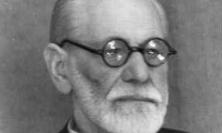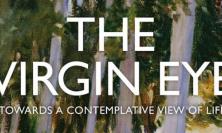Professor Rachel Blass follows her presentation of the psychological approaches to faith by asking why it is important for religious believers to engage with even the most critical of these models. ‘If properly attended to, psychological accounts of faith can lead to a questioning of faith that has the potential to deepen and enrich it.’
The value of the psychological approach to faith for the believer
In my previous article, I described the approaches to religious belief adopted by Sigmund Freud and other psychologists. It is important to reflect on such psychological approaches because, while critical and dismissive of faith in fundamental respects, they have significant things to say to believers and those seeking faith. If properly attended to, psychological accounts of faith can lead to a questioning of faith that has the potential to deepen and enrich it. Interestingly, this is especially the case regarding the account of faith offered by Freudian psychoanalysis – the approach most commonly thought (and with good reason) to be anti-religious. I outline four ways in which a psychological account of faith can help believers.
1. Recognising the limitations of our faith: belief vs. the believer
For a Christian believer, the idea that faith is a function of psychology is fundamentally wrong. Faith is from God. It is, as the German priest Fr. Romano Guardini states,‘the living answer to the call of Him who appears in revelation and draws men to Him in grace’.[1] And the object of faith is Jesus, not God ‘understood in an indefinite sense or as somehow experienced’.[2] Faith is shrouded in the mystery of grace, where ‘no psychological analysis, no logical reasoning, can penetrate’.[3]
But the psychological approach speaks not only of the essence of faith, but also of the psychology of the believer. Faith in its true essence may be from God, yet in practice our own faith may be determined by self-serving psychological motives – the reality-distorting wishes and needs that Freud describes. And if we look at our own faith with greater psychological sensitivity to underlying motives, we may recognise its limitations and in this way come to a truer stance of faith. This is the first benefit of the psychological approach to faith.
In this respect, psychology advances the awareness to our hidden motives in relation to God that has been with us since Biblical times. Jesus speaks of how we profess faith, cry, ‘Lord, Lord’ but without actually knowing Him (Mt 7:21); how we may make demonstrative acts of faith, or prayer, with the underlying aim of impressing those around us. Those who have written about the mystical experience have always warned that what seem like intimate and immediate experiences of God may be products of distorted psychological wishes, based in part on arrogance and pride (e.g. St. John of the Cross).
Recently, the British cloistered Carmelite nun, Ruth Burrows, offers in her books on faith and prayer extensive and vivid descriptions of how ‘many christians and not mere nominal christians but those who pride themselves on their upholding of the faith’[4] create caricatures of God out of self-serving motives:
Over and over again we must realise how, in what we think of as our love and service of God, lurks a ravenous self-seeking which would use God to inflate self.[5]
Emphasising the security we hope to obtain through faith she adds:
Many of us see the church and the faith, as we call it, like an insulated, armoured, electrified carriage in which we can sit secure behind curtained windows as we hurtle through the dark forests.[6]
And she explicitly notes the role of modern-day psychology in our becoming more aware of such distortions of faith. It has made us recognise that we cannot at all rely on our experiences of closeness to God (no matter how intense) as signs of the truth of our faith, as proof of God’s presence – however much we may like to. ‘Our knowledge of psychology,’ she writes, ‘has made us healthily sceptical of much of what was formerly thought to be supernatural’.[7]
Indeed such scepticism may lead one to doubt one’s faith, but if what we call faith is not truly from God it should be doubted. Often it is the case that it is easier to doubt the faith of others; when we think of fellow parishioners we may be able to see how faith is determined by a need for authority or for pride in seemingly spiritual achievements, by a desire to deny the pain of death, by obsessive tendencies, by a wish to preserve a sense of identity or take on a new perfect one. We see this in the small things that others do. The psychological approach, especially that of Freud, directs us to recognise these concealed motives in ourselves, in the details of our thoughts and actions, to feel them in an immediate and personal way. While this may deprive us of a sense of security in our faith, it may more truly leave us in God’s hands.
So while reading philosophical and theological defences of faith can highlight for us what could be true in our faith, psychology compels us to see how we fail to attain to that truth.
2. Facing doubt head on: the challenge of the supernatural
The psychological approach leads us to doubt or question our faith in another way. Not only does it show us how our faith may be influenced by self-serving motives, but it also confronts us with difficulties we may have in fully acknowledging the transcendent, supernatural nature of faith.
Pope Benedict XVI explains why the transcendent nature of faith poses a stumbling block. Faith, he says, ‘represents the risky enterprise of accepting what plainly cannot be seen as the truly real and fundamental’.[8] It involves a ‘leap… out of the tangible world’[9], a world which is familiar, intellectually comfortable, and a source of security – especially in our culture in which reality is understood in very material and concrete ways.
I would suggest that the fact that the psychological approach directs our mind to the very tangible dimensions that may be shaping faith highlights this risk. It is with heightened awareness to all the natural, worldly influences on faith that we are challenged to stand firm and profess the supernatural character of God’s presence with us. The challenge is made more difficult by the fact that there is a strong tendency in contemporary culture to understand our states of mind and our choices in terms of psychological needs, desires and inborn inclinations, and the environmental conditions that affect them. For example, whereas St. Augustine understood his restless predicament prior to conversion as an expression of his distance from God, cured by his heart finding its rest in God, today we may be more inclined to think of someone in his condition as suffering from an impulse disorder and depression, tied to conflicting desires and dysfunctional family conditions – therapy and perhaps medication would be prescribed.
Two ways of resolving the inner tension that one may feel between the compelling nature of psychological explanation and the acknowledgement of the supernatural nature of faith are (a) to quickly dismiss psychological explanation and dogmatically assert the role of the supernatural, well beyond one’s actual personal ability to do so; and (b) to limit the scope of faith. The more ahistorical, general and vague our notion of God, the less room there would be for psychological explanation.
In contrast, by taking the psychological approach seriously (without limiting faith) we face the tension head on and have the opportunity to struggle with it, to encounter the real risk that faith involves; how much it leaves us dependent on God alone. And here too, while this may heighten doubt, it may also be a path to a more whole-hearted affirmation of the supernatural nature of the encounter of faith.
3. Opening us to the transcendent (surprisingly)
While psychologists describe faith in natural terms it is interesting that at points they find these inadequate to capture reality as they have encountered it in its complexity; they feel that something is amiss, some truth beyond the immediate material reality must be introduced to make sense of what we know of human nature. Although this largely goes unrecognised, this need to go beyond the natural is most notable in the work of Freud, faith’s great critic.
While Freud’s explanation of faith emphasises motives and needs, at certain critical points he put forth a different (and much less well known) theory, which rests on a historical narrative of sorts, a kind of myth. As with his explanation of motives and needs, the narrative centres on the father, but there is a fundamental difference. It goes as follows: at the start of human history, there was a great father figure, who kept all the women to himself. His sons, out of envy and desire, rose up against him and killed him. But because the father was much loved the consequence of this destructive act was remorse and ultimately, through the internalisation of the image of this father, a sense of guilt first emerged. This constellation of love, envy, destruction and guilt in these early events was, according to Freud, registered in the depths of our minds and somehow transmitted to all future generations in some unarticulated form. This explains for Freud aspects of human nature that would otherwise be opaque – our inherent love of the father (independent of the nature of our actual father), and what seems to be the fundamental ethical dimension of human nature as expressed in the sense of guilt, in the desire to curb one’s egoistic wishes. It also explains faith. How so?
According to Freud, when a person hears of God, of a great, loving, protective and limiting father, against whom we have sinned and who is part of our very selves, a vestige of the prehistorical reality within us in a sense compels us to affirm that this is true. Such belief according to Freud is indeed ‘justified’.[10] To the extent that our ideas of God are shaped by the limitations of our mind to have accurately perceived and registered early reality, and to the extent that they are further shaped by our wishes, these ideas are false. But to the extent that they convey the great truths of ‘the earliest experiences of the whole of humanity’ (in the events surrounding the first father) that return and find revived expression in our minds and in our lives, they are also true – true to a past external reality.[11] The idea of God is an echo of what we know in our hearts to be true.
In positing this prehistorical reality to explain religious faith it is clear that Freud recognised on some level that one must look beyond imminent, material reality in order to explain the depths of the mind. One must also look beyond what is objectively demonstrable. He found this kind of transcendence by positing a time beyond time in which we all take part. Rather than turn to the supernatural, he created a bizarre natural story and remained an atheist. Nevertheless, Freud’s work points to how the understanding of the truth of human nature leads us outside of ‘this world.’ It leads to a story that in many ways corresponds to the biblical one (at the foundation of man’s psyche there is a knowledge of a loving father towards whom, in the beginning of time, we destructively sinned out of desire and envy and from whom we seek forgiveness). But more importantly, the effort to explain human nature leads – even for Freud – to an acknowledgment of the necessary involvement of some transcendent dimension.
4. Promoting love
Faith is a grace, a mystery, an act coming from God. But at the same time we are invited to be attentive to God’s presence, to open ourselves to it, through prayer, through living the sacraments, through reflection and especially through love. As stated in the first letter of John: ‘God is love and anyone who lives in love lives in God and God lives in him’ (1 Jn 4:16). And Pope Benedict XVI explains: ‘Only if I serve my neighbour can my eyes be opened to what God does for me and how much he loves me’.[12]
Does the loving atheist live in God while denying his existence? This touches upon difficult issues. For our purposes what is important is the close tie that is posited between love and faith. This is because psychology, especially in the form of Freudian psychoanalysis, is geared towards promoting love. It does not apply a technique or a drug that somehow eradicates unloving states, but rather engages the person in a struggle with his inner obstacles to love. How so?
As Freud’s pre-historical myth shows, the self-serving needs and wishes that, according to psychoanalysis, determine how we see the world, are only one side of the story. We are also fundamentally loving and feel bad for the damage our self-serving and greedy wishes incur. It is because of the conflict between our loving and our destructive sides that we need to conceal reality from ourselves. For example, we may not want to see that we are envious or dependent because in the depths of our minds we know that our envy and our dependence make us want to lash out and destroy those we love. Knowing this we feel both guilty and unlovable, feelings which too we may want to conceal. There are numerous potential consequences to our efforts to conceal. What we reject in ourselves we may find in others. Others then seem to us undeserving of our love. Or we may want to see others as worthless so that we could convince ourselves that there is no reason for our envy. Alternately, we may convince ourselves that we are loved by all and need no one – as may be seen in prideful, self-centred people. We may then conceal our consequent inability to love with exaggerated expressions of love and charity, perhaps as part of a religious stance.
Psychoanalysis allows us to encounter both the good and the bad in our minds and in ourselves; it invites us to struggle with the conflict between them despite the threat that this entails, in a way that transforms us, allows us to live without distortion. We can then, for example, bear to see that others are lovable, even if not in our control. Confronting our self-serving destructive sides is a painful and difficult process and is supported, in part, by finding within ourselves how much we do love and have been loved. It is striking that in this process psychoanalytic theory is not as morally neutral as it is usually presented and considers itself to be. Psychoanalysis invites us to see both the good and the bad in human nature, but the hope and belief is that the goodness of love will win the day. We will see the bad and live the good.
Thus, while explicitly rejecting faith, psychoanalysis values love and promotes it and in this way may be thought to serve the development or deepening of faith.
In this context a letter written to Freud by his friend and colleague Oskar Pfister in 1918 is interesting. Pfister, a psychoanalyst but also a Swiss Lutheran minister, was responding to a letter by Freud in which Freud referred to himself as a Godless Jew. This is what Pfister wrote back on the matter:
in the first place you are no Jew, which to me, in view of my unbounded admiration for Amos, Isaiah, Jeremiah, and the author of Job and Ecclesiastes, is a matter of profound regret, and in the second place you are not godless, for he who lives the truth lives in God, and he who strives for the freeing of love ‘dwelleth in God’ (First Epistle of John, iv, 16). If you raised to your consciousness and fully felt your place in the great design, which to me is as necessary as the synthesis of the notes is to a Beethoven symphony, I should say of you: A better Christian there never was…[13]
Conclusion
As we have seen, the psychological approach and the Christian approach to faith are opposed to one another – the one explaining faith in terms of a-theistic psychological constructs and the other in terms of a supernatural communion with God. Yet, despite its inherently critical nature, I maintain that the psychological approach to faith that I have described can be helpful to those seeking faith. In questioning our motives this approach purifies faith; in emphasising natural explanations it challenges it; by pointing to the transcendent it directs us to it; and in opening us to love it may help prepare our hearts to receive it.
Professor Rachel Blass is a psychoanalyst and heads the Psychology of Religion postgraduate programme at Heythrop College, University of London.
[1] Guardini, R., Living the Drama of Faith (Manchester, NH: Sophia Press, 1998), p. 19.
[2] Ibid.
[3] Ibid, p.30.
[4] Burrows, R., To Believe in Jesus (London: Continuum, 2010), p.10.
[5] Ibid, p.3.
[6] Ibid, pp. 12-13.
[7] Burrows, R., Guidelines for Mystical Prayer (London: Burns &Oates, 1976), p. 11.
[8] Benedict XVI, Introduction to Christianity (San Francisco: Ignatius Press, 2004), p. 52.
[9] Ibid., p. 51.
[10] Freud, S., Moses and Monotheism: Three Essays. Standard Edition (1939) 23:7-137, p. 628.
[11] Ibid, p. 130.
[12] Benedict XVI, Deus Caritas Est (2005), §18.
[13] Meng, H. & Freud, E. L., (eds.), Psychoanalysis and Faith: The Letters of Sigmund Freud and Oskar Pfister (New York: Basic Books, 1963), p. 63.
![]() ‘Faith and the Psychologists: What do psychologists say about faith?’
‘Faith and the Psychologists: What do psychologists say about faith?’
![]() Heythrop College, University of London
Heythrop College, University of London






